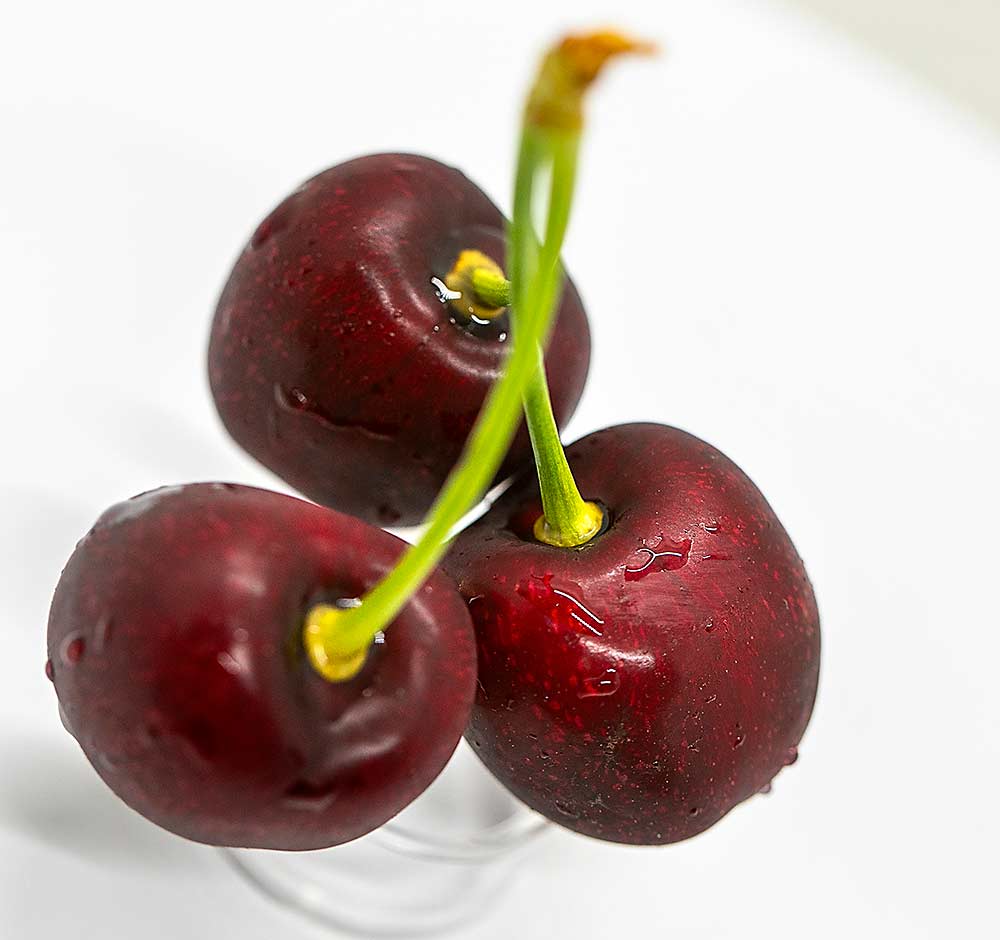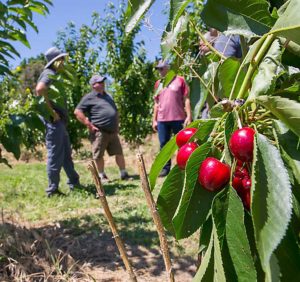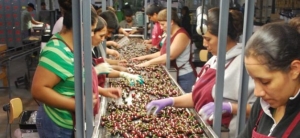
Despite concerns of the Canadian government, a Washington fruit grower is continuing to sell scion wood for a cherry he believes is a chance sport that grew in his orchard.
Kevin Carney of Cashmere, Washington, is continuing to sell cuttings for the cherry he named Carneval, though his nursery representative, Willow Drive, dropped out after Summerland Varieties Corp., a government-funded breeding program in British Columbia, claimed the cherry as one of theirs.
“It is still a viable variety, we are still selling trees, it’s just a bit of a sticky wicket,” Carney said.
In 2018, Carney began commercializing the cherry, which he had propagated from a whole-tree Skeena mutation, with the help of Willow Drive Nursery. In 2019, the partners held a public field day near Wenatchee, covered by Good Fruit Grower, for interested growers.
In 2020, Willow Drive produced and sold almost 8,500 trees under the name Carneval. Summerland then asked Willow Drive to test the variety’s DNA. The nursery sent samples to University of California, Davis, and they matched Sumste, a red cherry marketed under the name Samba.
Willow Drive then pulled the variety from its catalog and continued to sell off its remaining trees under the name Samba, said Jim Adams, co-owner of Willow Drive.
Adams sympathizes with Carney and his wife, Val, but intellectual property protection is part of the nursery game.
“Willow Drive can’t be tied to it because of all the other (varieties) we’re doing with Summerland and other variety holders,” Adams said.
Had Carneval’s DNA been found to be unique, Willow Drive would have helped protect Carney’s rights, too, Adams added.
Summerland considers Willow Drive an “authorized nursery,” a business arrangement that requires the parties to communicate regularly, said Sean Beirnes, general manager of Summerland. The Carneval question came up during those routine discussions.
Summerland also conducted its own DNA analysis in 2021 through a contracted laboratory. Leaf sample DNA from both Carneval and Sumste showed a match for all 16 single nucleotide polymorphism markers, small variations of genetic code that provide a high-resolution method for differentiating closely related varieties, Beirnes said.
“If there’s a lesson to be learned here, I think it’s to do thorough due diligence using scientific analysis if an anomalous tree is discovered in your orchard,” Beirnes said.
Summerland has a U.S. trademark for the name Samba but not a patent for the variety, Beirnes said.
Carney contends his cherry, the Carneval, is unique from the Samba because it harvests five to 10 days earlier.
Canadian agricultural authorities have not taken any court action regarding Carneval, but they have with other varieties. In 2020, Agriculture and Agri-Food Canada and the minister of agriculture — on behalf of “Her Majesty the Queen,” according to court documents — sued some Washington growers and one nursery in the U.S. District Court’s Eastern District of Washington for intellectual property rights infringement for growing and selling what they believed to be a chance seedling cherry they named Glory. Summerland contends the cherry is really one of its varieties named Staccato.
Beirnes declined to discuss the case, which is still in court.
But the move put a chill in the market, said Mark Walters, a Seattle attorney representing the growers and nurseries in the Glory-Staccato case. Nurseries and growers won’t take on a variety with any question marks, he said.
—by Ross Courtney








Leave A Comment